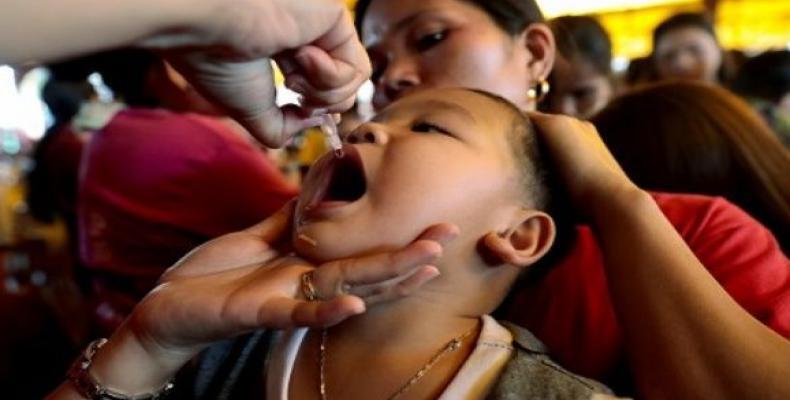Geneva, November 29 (RHC)--The World Health Organization said in a recent report that nine new polio cases linked to a vaccine were witnessed in several African countries including Nigeria, Congo, Central African Republic, and Angola.
Apart from these four countries, seven others in Africa have also experienced similar outbreaks, and cases have also been detected in Asia. In Afghanistan and Pakistan where polio remains endemic, cases caused by the live virus in oral polio vaccines were observed, according to the report.
The live virus in the oral vaccine has mutated into an infectious form that has the potential to spark new outbreaks bringing the global total of these types of infections to 157 for this year. This means that more children are paralyzed as a result of such vaccine-derived infections than illnesses caused by the wildtype virus, which has affected 107 people this year. All the current vaccine-derived polio cases have been sparked by a Type 2 virus contained in the vaccine.
Polio is a highly infectious disease that spreads in contaminated water or food and usually affects children under five. About one in 200 infections result in paralysis; among those, a small percentage die when their breathing muscles are crippled.
International donors convened last week and pledged $2.6 billion to eliminate polio from the world. The virus’ eradication initiative began in 1988 and hoped to wipe out polio by 2000. Since then, numerous such deadlines have been missed.
To eradicate polio, more than 95 percent of a population needs to be immunized. WHO and partners have long relied on oral polio vaccines because they are cheap and can be easily administered, requiring only two drops per dose. Western countries use a more expensive injectable solution of inactivated virus, thus incapable of causing polio.
“Vaccine-derived poliovirus is spreading uncontrolled in West Africa, bursting geographical boundaries and raising fundamental questions and challenges for the whole eradication process,” the Independent Monitoring Board, a group set up by WHO to assess polio eradication, had already warned in a report this month.
The group said officials were “failing badly” to meet a recently approved polio goal of stopping all vaccine-derived outbreaks within 120 days of detection. “Relaxed” was the word used by the group to describe the initial attitude of WHO and its partners to stop these kinds of polio cases.


